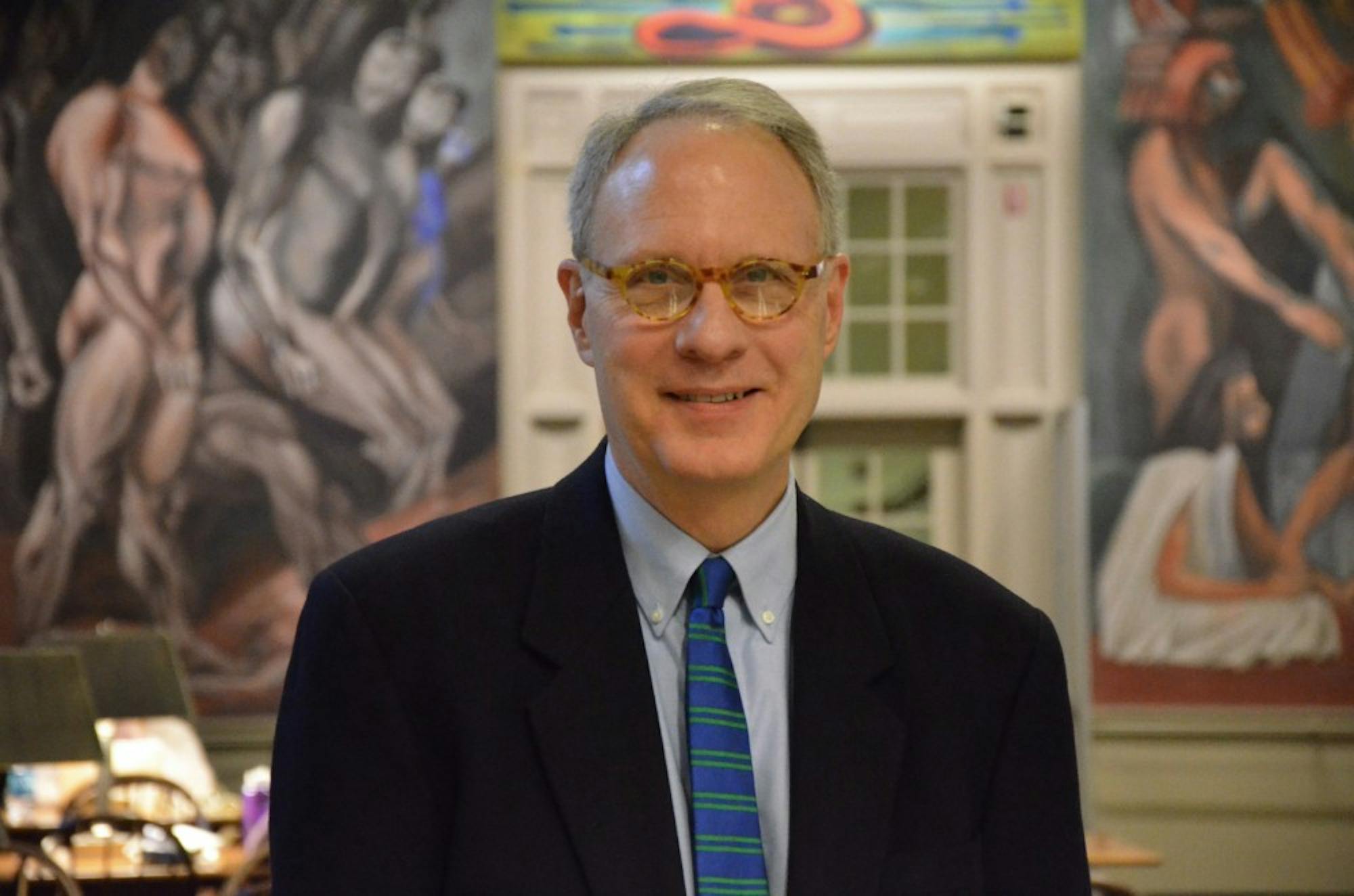After over 40 years working in college libraries, dean of libraries Jeffrey Horrell announced last week that he will be retiring in June 2016. Horrell has served as the 18th librarian of the College since 2005.
Horrell first began working at Dartmouth from 1981 to 1986 as the head of the Sherman Art Library. After working at several different universities, he returned to Dartmouth in 2005 as the librarian of the College.
Being offered a role at Dartmouth for the second time was a special opportunity, Horrell said.
“All those years I was away, I was one of those people that would say, wherever I was, ‘Well, you know, at Dartmouth….’ After a while, people got really tired of hearing that, and eventually I shut up,” Horrell said about his time working at other college libraries. “There’s something really special about this place.”
Horrell said he does not have any specific plans for his retirement but is looking forward to having more free time to travel.
“It will be interesting and exciting to have an unstructured life after working for 40 years in this profession. I think it will sort of be an opportunity to really understand what’s next,” he said.
Horrell served as a chair on the board of University Press of New England. UPNE is a university press consortium that has worked with library staff on open access publishing ventures and digitizing library materials.
Michael Burton, director of UPNE, said that Horrell initiated the relationship between UPNE and Dartmouth.
“There’s quite a synergy between a publisher and a library, and [Horrell] has worked with us helping to conceive our work of moving scholarship to open access and better defining ways to distribute our work and make it more discoverable both in the scholarly context and in a general public because of his knowledge of librarianship and how scholars use published material,” Burton said.
Horrell also jumpstarted Dartmouth’s involvement with Borrow Direct, a service that allows anyone at one of the 13 member institutions to request a book from the over 60 million volumes of work available between their libraries. He also led a partnership with publisher BioOne and the College to publish Elementa, a scientific research journal.
The faculty decision to make scholarly works accessible to the public was with Horrell’s guidance, Jane Quigley, head of the Kresge Physical Sciences Library and Cook Mathematics Collection, said.
One of the other significant changes Horrell has made has been the digital work in the library.
“We’ve done a lot of work in developing a digital infrastructure for the libraries to be able to reformat collections to be able to license electronic information. But that’s a foundation that will continue to build,” Horrell said. “My successor will have the real pleasure of, I think, building on that and doing wonderful things in the future.”
Quigley said that the library staff are sad to see Horrell leave.
“He has been a wonderful leader and dean of libraries,” Quiqley said. “I think the library has accomplished a number of things under his guidance that have been very exciting.”
As influential as Horrell has been as librarian, he credits both the staff and the students for the way Dartmouth libraries run.
“The greatest highlight is working with the wonderful colleagues that I have in the Dartmouth library. Our staff is simply amazing. And the collaboration and partnership that our students and faculty have with our staff is something that is really satisfying to help facilitate,” Horrell said. “I’ve just been able to be a part of helping to foster that.”
Horrell described the library as a collective legacy. The staff of 170 people and almost 200 students that work in the nine libraries is what them running as smoothly as they do, he said.
He highlights the accessibility of all the nine libraries as one of the hallmarks of the Dartmouth College library system. One does not have to be affiliated with Dartmouth to work with the librarians or use the libraries, Horrell said, emphasizing the ease with which anyone can access the special collections.
“Our whole thing around the special collections is that they’re here to be used. They’re here to be worked with, not just treasures to be in an exhibition case,” he said.
Picking a favorite library is impossible because it’s like picking a favorite child, Horrell said. He added that each library is different, but all are accessible to everyone.
Quigley said that working with a Horrell has been a great experience on a personal level, in addition to the improvements he has made to the library.
“He’s had a wonderful way of working with everyone in the library so that everyone feels valued and respected,” she said. “The sense of collaboration and of being part of a really wonderful team is in a large part due to [Horrell] and the liking and respect we have for him.”




